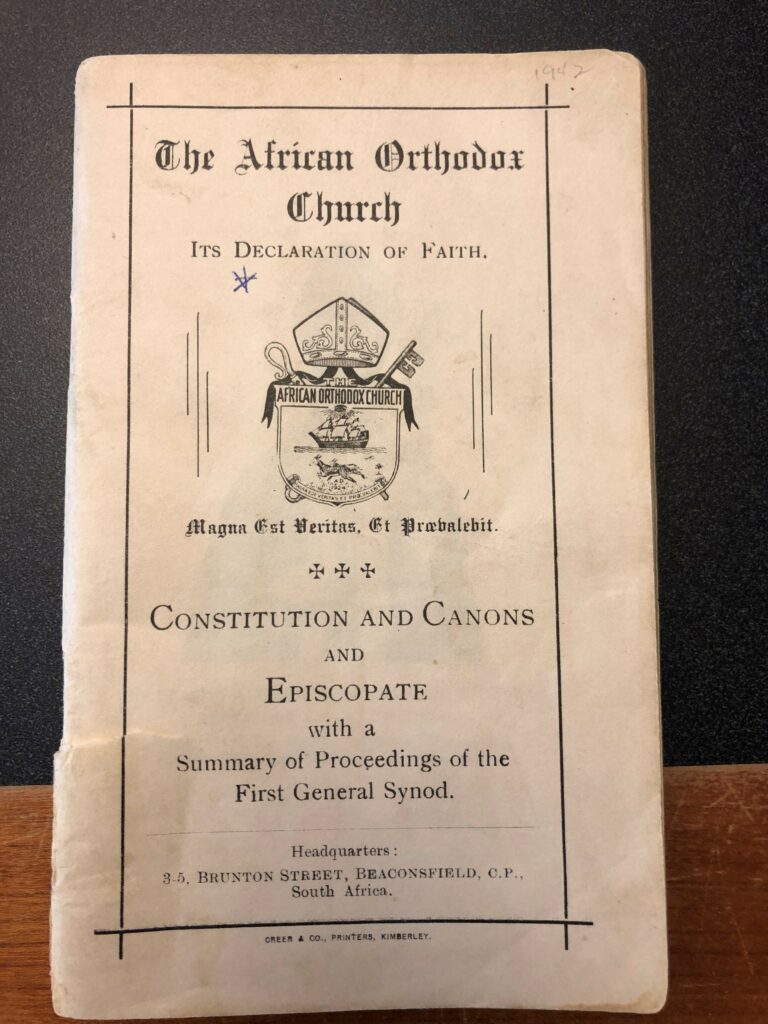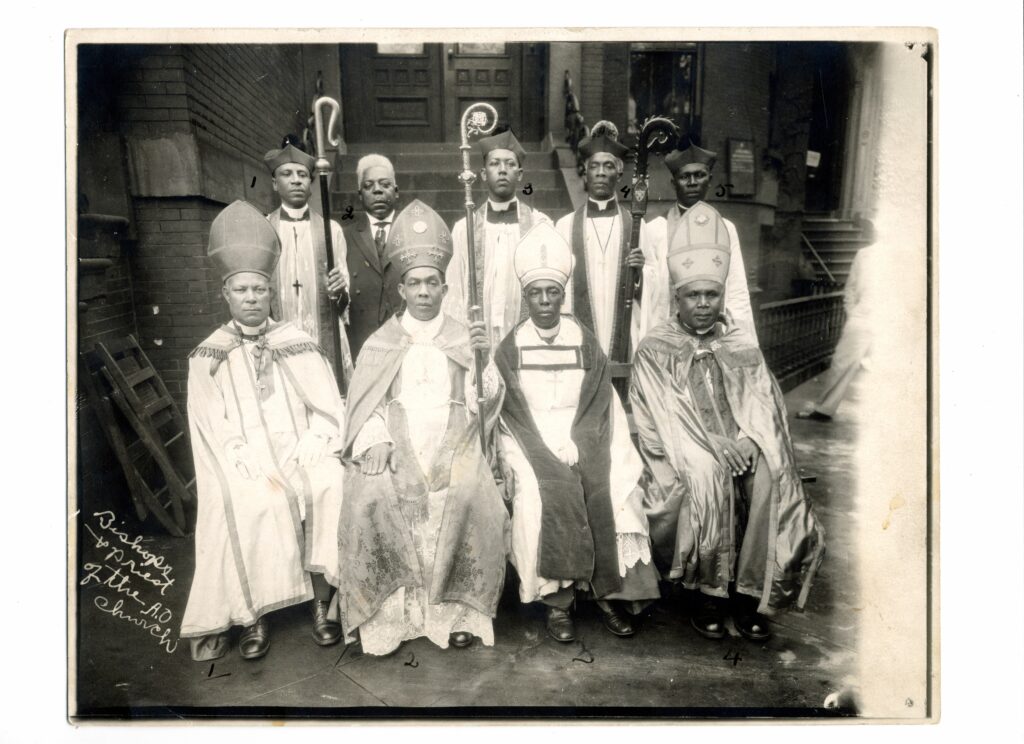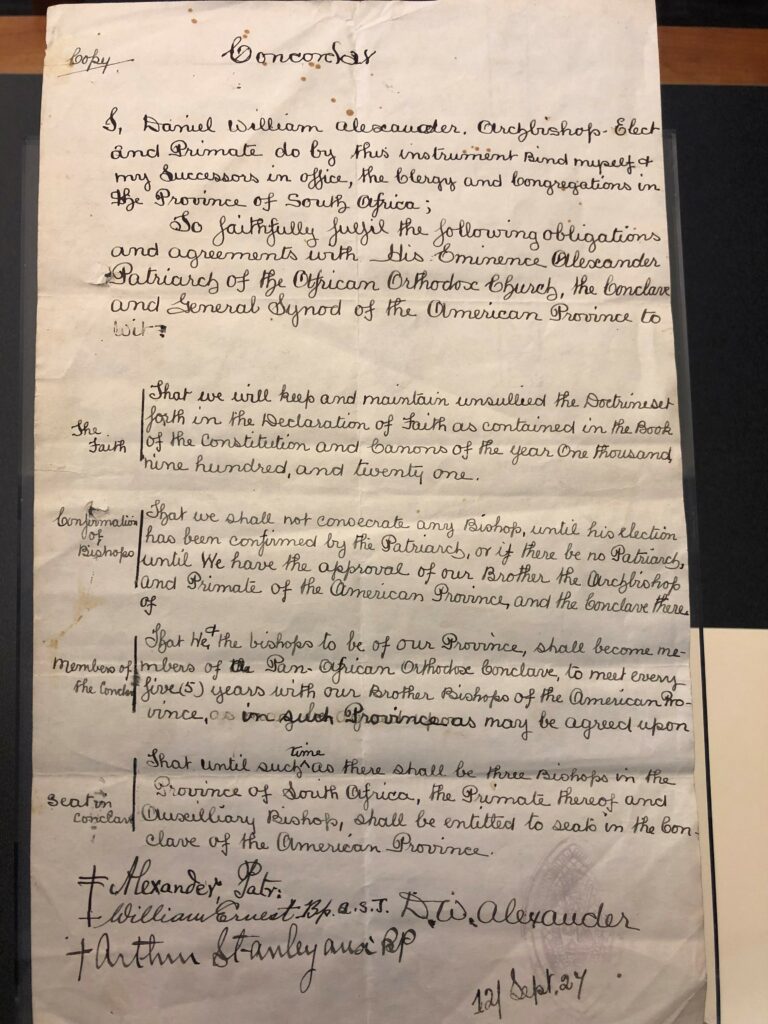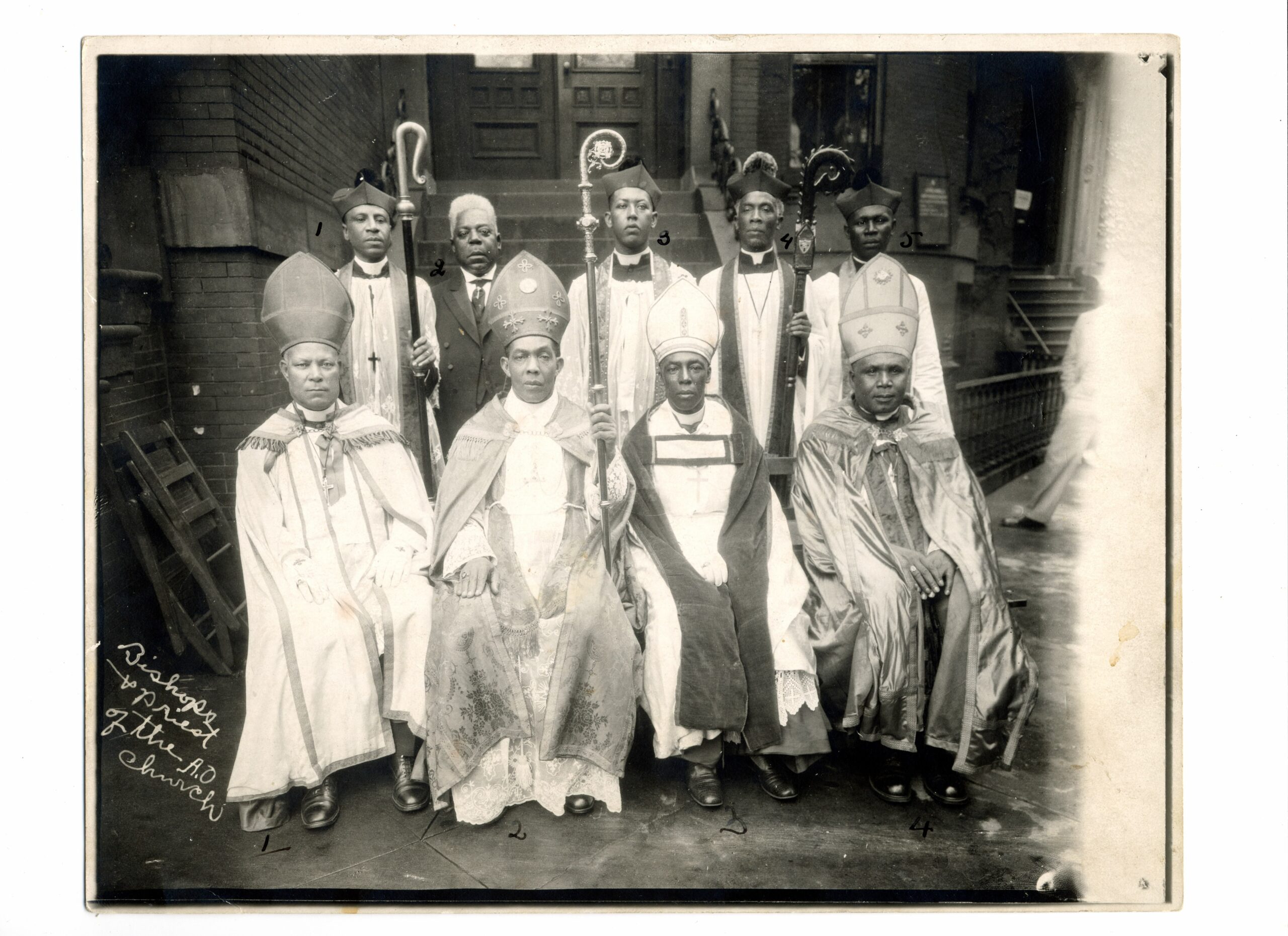
Year after year, one of the most frequently requested and most commonly researched collections in the Pitts Special Collections is the archives of the African Orthodox Church (AOC). This collection contains the records of the African Orthodox Church in South African, founded in 1924, as well as the personal papers of Archbishop Daniel William Alexander (1883-1970. The library’s finding aid for this collection can be found online and patrons can contact the Special Collections department to view these materials in person.
The African Orthodox Church originated in the United States, growing out of ideas of black separatism, and it spread to Africa where it played an important role in independence movements in Africa. Alexander was the central figure in the founding and spread of the AOC church in South Africa. Alexander was born in Port Elizabeth, Cape Province, South Africa, in 1883, and he attended Roman Catholic schools as a child. He later served with the British in the Second Anglo-Boer War until 1900. After his time in the military, he joined the Anglican church in Pretoria and began to study for ordination. However, for reasons unknown, around 1920, he left the Anglican Church, moved to Johannesburg, and became associated with the independent religious organization founded by J. M. Kanyane Napo, known as the African Church. In 1924, Alexander, once again dissatisfied with his religious associations, made a formal break from the African Church with a group of likeminded individuals, who elected Alexander as their head.

Around this time, Alexander had read about George Alexander McGuire (1866-1934) in the newspaper, The Negro World. McGuire had emigrated from Antigua to the United States and served as a priest in the Protestant Episcopal Church until 1918. McGuire’s experience in the Episcopal Church had been tainted with discrimination against him and his fellow Black clergy, so he severed his ties with the church and founded the African Orthodox Church. Marcus Garvey (1887-1940) then used his periodical The Negro World to disseminate the news of the church and its operations across the Atlantic and throughout Africa, where Alexander read of McGuire. So, on September 24, 1924, Alexander asked to be affiliated with the African Orthodox Church. After review, Alexander was invited to America. On September 11, 1927, Alexander was consecrated by McGuire in Boston. Alexander returned to Kimberley, South Africa, and to his parish after his consecration. From this base, Alexander traveled across South Africa and set up parishes wherever he found local interest. All the while, Alexander continued to correspond with McGuire in America until McGuire’s death in 1934.

Alexander continued his ministry and outreach with the African Orthodox Church until 1960, when the affiliation between Alexander’s churches in South Africa and the AOC in America contentiously ended. Alexander had invited members of the US church, including Patriarch James I, to visit South Africa to consecrate two new bishops, Surgeon Lionel Motsepe and Ice Walter Mbina, to provide an established succession. We do not know the reasons, but Alexander and the Americans had a disagreement and James I ordered him to resign his position as archbishop in favor of the two newly consecrated bishops. Alexander refused to relinquish leadership. He maintained that he and McGuire had agreed that the American church only had power over the African church in spiritual but not temporal matters. Before the matter could be resolved, both James I and Motsepe died. Alexander was reconciled by the new patriarch, Peter IV, and he agreed to submit to Mbina. However, in 1963, Alexander broke away from Mbina and the African Orthodox Church in the US. He formalized the autonomy he believed McGuire had intended for the African church by naming his body the African Orthodox Church of the Republic of South Africa
Alexander died in May 1970 at the age of 88. He remained the Patriarch of the African Orthodox Church of the Republic of South Africa until his death. The archives of the African Orthodox Church (records dating from 1880-1974) could be considered the papers of Archbishop Daniel William Alexander. Practically all the correspondence was either sent or received by Alexander, and a large amount of the other manuscript material is in his handwriting. The library has worked to separate items that document the life of Alexander from items that document the history of the church, but researchers will find that there are many “gray area” items that include both. Because of items such as these, the personal papers of Alexander have been treated as a part of the Church’s archives and not as a separate collection.
by Emily Corbin, Special Collections Reference Coordinator

